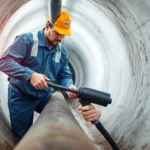Understanding Construction Equipment Rental: Benefits and Key Considerations
In the dynamic world of construction, efficiency, flexibility, and cost management are pivotal to project success. Construction equipment rental has emerged as a strategic solution that addresses these core needs, enabling contractors and developers to access modern machinery without the hefty investment of purchasing outright. Whether undertaking small renovation projects or large-scale infrastructure developments, leveraging rental equipment offers numerous advantages, from financial savings to operational flexibility.
For those delving into the intricacies of construction equipment rental, it’s vital to understand its comprehensive benefits, key factors influencing rental choices, and the diverse types of machinery available. This guide provides an in-depth exploration to equip you with practical knowledge, ensuring informed decision-making and optimal project outcomes. To begin, discover how renting can be a cost-effective alternative by visiting construction equipment rental providers who specialize in tailored solutions across the UK.
Why Renting Construction Equipment Is Cost-Effective
One of the foremost advantages of construction equipment rental is significant cost savings. Purchasing machinery involves substantial capital expenditure, ongoing maintenance costs, storage, and insurance premiums—all of which can strain a company’s budget, especially for short-term projects. Rental eliminates these upfront costs, as you only pay for the equipment during the period of use.
Additionally, construction technology is constantly evolving. Renting allows access to the latest models equipped with advanced features, improved efficiency, and enhanced safety measures—all critical for meeting modern standards and completing projects on time and within budget. Rental companies often cover maintenance and repairs within the rental agreement, further reducing operational expenses and downtime caused by equipment breakdowns.
Case studies underline this point—contractors who opt for rental equipment report overall project costs decreasing by up to 30%, primarily due to reduced capital investment and maintenance expenses. Moreover, flexible billing options and short-term rentals enable project managers to adjust their equipment needs dynamically, avoiding the under-utilization of owned machinery.
Essential Factors When Choosing Rental Machinery
Assessing Machinery Quality and Reliability
Ensuring the equipment’s quality is paramount. Reliable machinery minimizes downtime and safety risks. Always choose suppliers with well-maintained fleets, modern machinery, and transparent servicing records. Equipment should meet UK safety standards and be suitable for the specific demands of your project.
Consideration of Rental Terms and Flexibility
Rental agreements vary between providers. Seek flexible terms that accommodate project timelines, with options for short-term, long-term, or even nationwide multi-site rentals. Clear contract conditions, including maintenance responsibilities, penalties, and cancellation policies, are critical for smooth operations.
Evaluating Supplier Support and Customer Service
Reliable customer support ensures assistance during emergencies, equipment breakdowns, or operational queries. Look for vendors offering comprehensive support, quick response times, and additional services such as operator training or on-site technical assistance.
Pricing and Transparent Quotation Processes
Obtain detailed quotations that specify all costs, including delivery, collection, insurance, and potential surcharges. Comparing quotes across suppliers helps identify competitive pricing and value-added services, ensuring cost-effectiveness without compromising quality.
Types of Equipment Available for Construction Projects
The breadth of equipment available through rental services caters to a wide range of construction needs. Some of the most commonly rented equipment includes:
- Excavators: For digging, trenching, and material handling, available in various sizes for different project scales.
- Bulldozers and Loaders: Essential for earthmoving, grading, and site preparation.
- Road Rollers and Compactors: For soil stabilization and surface compaction.
- Concrete Mixers and Pumps: For efficient concrete placement, vital in structural frameworks.
- Scaffolding and Lifting Equipment: Ensuring safe access and material movement at heights.
- Power Tools and Handheld Equipment: From breakers to drills, useful in finishing and detail work.
Each machinery type plays a critical role, and selecting the right equipment depends on project specifics, site conditions, and budget. Modern rental providers offer well-maintained, versatile equipment fitted with safety features, and often include options for operator training to maximize productivity and safety.
How to Choose the Right Construction Equipment Rental Partner
Evaluating Supplier Reliability and Fleet Quality
Partnering with a reputable supplier is essential for project continuity. Check credentials, reviews, and the company’s history to ascertain reliability. A robust fleet comprising the latest machinery enhances operational efficiency. Leading providers regularly update their inventory to keep pace with technological advancements and industry standards.
Customer Service and Support During Rentals
Excellent customer support minimizes project delays. Choose suppliers that offer 24/7 assistance, on-site technical support, and prompt maintenance services. Establish clear communication channels before signing a contract to ensure quick resolution of any issues.
Pricing, Contracts, and Rental Flexibility
Competitive pricing combined with flexible rental terms is vital. Negotiate for options that suit your project schedule, including extensions or early returns. Transparent contracts with outlined responsibilities protect against unforeseen charges. Many top providers also offer bundled packages with equipment and operator services, providing added convenience.
Best Practices for Using Construction Equipment Safely and Efficiently
Training and Handling Guidelines for Operators
Well-trained operators are the backbone of safe and productive construction sites. Comprehensive training programs should cover machine operation, safety protocols, and maintenance routines. Ensuring operators understand the equipment’s features and limitations reduces accidents and prolongs machinery lifespan.
Routine Inspection and Preventive Maintenance
Regular inspections before and after use identify potential issues early. Checking hydraulic levels, wearable components, and safety features prevents breakdowns and accidents. Adhering to manufacturer-recommended maintenance schedules extends equipment life and maintains optimal performance.
Optimizing Equipment Usage for Project Efficiency
Effective planning of equipment deployment avoids bottlenecks and idle time. Utilize project management tools to schedule machinery availability, operator shifts, and maintenance periods. Sharing equipment across multiple project sites can maximize utilization, reducing overall costs and environmental impact.
Case Studies: Successful Projects Powered by Construction Equipment Rental
Large-Scale Infrastructure Developments
In recent infrastructure projects, rental of excavators and heavy-duty rollers allowed rapid site development with minimal downtime. For example, a highway expansion in the Midlands utilized rental equipment to accelerate construction, resulting in early completion and budget savings. Such projects highlight the importance of access to diverse, high-capacity machinery supplied by trusted rental firms.
Commercial and Residential Building Projects
Rental equipment played a vital role in multi-family residential developments in London, where contractors relied on concrete pumps and cranes to coordinate complex timelines. The flexibility of short-term rentals enabled adaptation to design modifications or delays, ensuring project timelines stayed on track.
Environmental and Renewable Energy Construction
Innovative projects such as wind farms and solar plant installations have benefited from specialized equipment rentals, including cranes, soil stabilizers, and environmental monitoring tools. Utilizing eco-friendly machinery options reduces carbon footprints and aligns with sustainable construction practices.
Future Trends in Construction Equipment Rental in the UK
Emergence of Eco-Friendly Machinery
The drive towards sustainable construction is shaping the future of equipment rental. Electric and hybrid machinery options are becoming more prevalent, reducing emissions and noise pollution. Rental providers increasingly offer environmentally friendly equipment to satisfy stringent UK regulations and societal expectations.
Integration of Digital Tracking and Automation
Smart equipment equipped with GPS tracking, telematics, and IoT integration enhances operational efficiency, asset management, and safety. These technologies allow real-time monitoring of usage, location, and maintenance needs, simplifying logistical planning and reducing downtime.
Rentals Supporting Sustainable Construction Practices
Adoption of modular, lightweight machinery promotes resource efficiency. Additionally, rental companies are emphasizing sustainability in their operations, such as using renewable energy sources for fleet servicing and promoting circular economy principles through equipment refurbishment programs.









